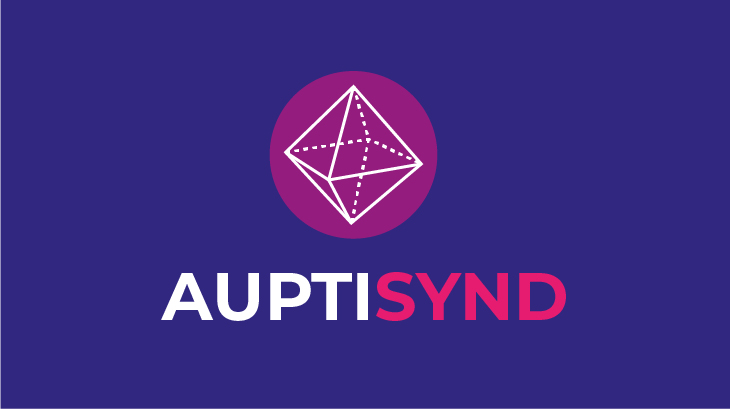What is a Syndicate?
A Syndicate is an SPV with a twist (if you’re wondering “what is an SPV?”, see our separate article “Understanding SPVs“).
Like an SPV, a Syndicate is an entity or legal arrangement (often a company) launched to acquire and hold a single asset for long-term investment. Unlike an SPV, a Syndicate is spearheaded by a specific person (or team) – known as the ‘Lead’ – who brings a unique skillset to the investment opportunity and invites others to participate. The Lead is responsible for the Syndicate’s investment activities, meaning investors can participate with comparatively little effort on their part.
What ‘skillset’ a Lead brings will vary. It may be that, through their personal network, a Lead has access to deals that others do not (e.g. when investing in start-ups). Or the Lead may have specific industry knowledge that can be used to identify promising investments (e.g. in digital assets or cryptocurrencies). Whatever it may be, potential investors will decide whether to invest based on the Lead’s skillset and the investment opportunity they have identified.
For investors, a Syndicate can allow them to access investment sectors and opportunities that they would otherwise never see. As long as they pick the right Lead (and Syndicate), investors can reap the financial benefits of these illusive investment opportunities. In return, the Lead can receive a share of the total profits generated by the Syndicate, often called a performance fee, carried interest or simply ‘carry‘.
Who uses Syndicates and why?
Syndicates are used by a broad range of people for an even broader range of reasons. The below are a few examples of who uses Syndicates and why. See our article on Auptimate’s User Profiles for a more detailed explanation of the below user types.
- To share a promising investment opportunity with their friends and wider network.
- To diversify their portfolio by investing smaller amounts across a number of Syndicates.
- To improve their negotiating position by making a larger investment than if investing on their own.
- To increase their own returns on a successful exit with a performance fee.
- To make initial investments, start building a track record and structure for easy transfers into a future fund.
- To initiate discussions with potential investors and bring actual investment opportunities to the table.
- To start earning ‘carry’ on successful exits.
- To co-invest with other fund managers or other investors, e.g. in a follow-on investment.
- To make an investment that falls outside their fund’s investment strategy (e.g. to avoid over exposure to a single investment).
To co-invest with other family offices or other investors and maximise returns for finding and inviting those others to an investment.
- To retain decision-making over which deals to invest in, rather than relying entirely on a Fund Manager or other intermediaries.
- To co-invest with others and maximise returns for finding and inviting others to an investment.
What is then AuptiSynd?
The AuptiSynd is a Syndicate created using Auptimate’s online structuring tool. It is:
- Customisable by the user.
- Unique to a specific user’s needs.
- Cloud-native with all documents automatically generated, signed and stored online.
- Launched online in a matter of minutes.
- Managed via Auptimate’s online platform.
Auptimate handles an AuptiSynd’s incorporation, legal documents, investor onboarding, administration, accounting, tax, compliance, investor communications and other back-office functions – all on Auptimate’s online platform. We give Syndicate Leads the peace of mind to focus on what they do best: invest.
AuptiSynds are typically formed as a private company limited by shares incorporated in Singapore. However, we work with customers who are interested in different types of entity, whether in Singapore or elsewhere in the world.
What are the key terms of an AuptiSynd?
Number of investors
Between 1 and 50
Type of investors
Accredited Investors
Number of investments
One
Type of investments
Any asset class, but the investment must be known and identifiable when the AuptiSynd is launched
Number of closings
One (potential for a rolling closing of up to 6 months)
Management fee
No
Performance fee
Yes, typically between 0% and 30% (20% is most common)
Key decision maker
Syndicate Lead
What’s the difference between the AuptiSynd and the AuptiSPV?
The two biggest differences between the AuptiSynd and the AuptiSPV are:
- Decision-making:
In an AuptiSynd, the Lead has control over the management of the AuptiSynd’s property, whereas in an AuptiSPV, the investors
- Economics:
Because of this decision-making, the Lead of an AuptiSynd usually (but not always) receives a performance fee, i.e. a share of the profits, which is linked to the performance of the investment and not how much the Lead invests. In an AuptiSPV, the investors collectively share the ultimate profits in proportion to their investment.
What’s the difference between the AuptiSynd and the AuptiFund?
The three biggest differences between the AuptiFund and the AuptiSynd are:
- Investments:
AuptiSynds – and also AuptiSPVs – are launched on a deal-by-deal basis to hold a single asset, or a small number of related assets. Whereas AuptiFunds are launched to invest in a larger number of assets and create a diversified portfolio.
- Decision-making:
In an AuptiSynd, the Lead controls the AuptiSynd’s property, but will sometimes need investor approval for certain decisions. Whereas in an AuptiFund, the fund manager has this control and typically exercises it on a discretionary basis with no need for investor approval.
- Economics:
In an AuptiSynd, the Lead usually (but not always) receives a performance fee, i.e. a share of the profits. In an AuptiFund, the fund manager will inevitably receive both a management fee (to pay salaries and keep the lights on) and a performance fee.
To compare the AuptiSPV, AuptiSynd and AuptiFund, see our Product Comparison.
What next?
If you’re ready to start your own AuptiSynd, hit the “Launch” button at the top of this page. Or get in touch with us at info@auptimate.com and one of our experts will be more than happy to help.


